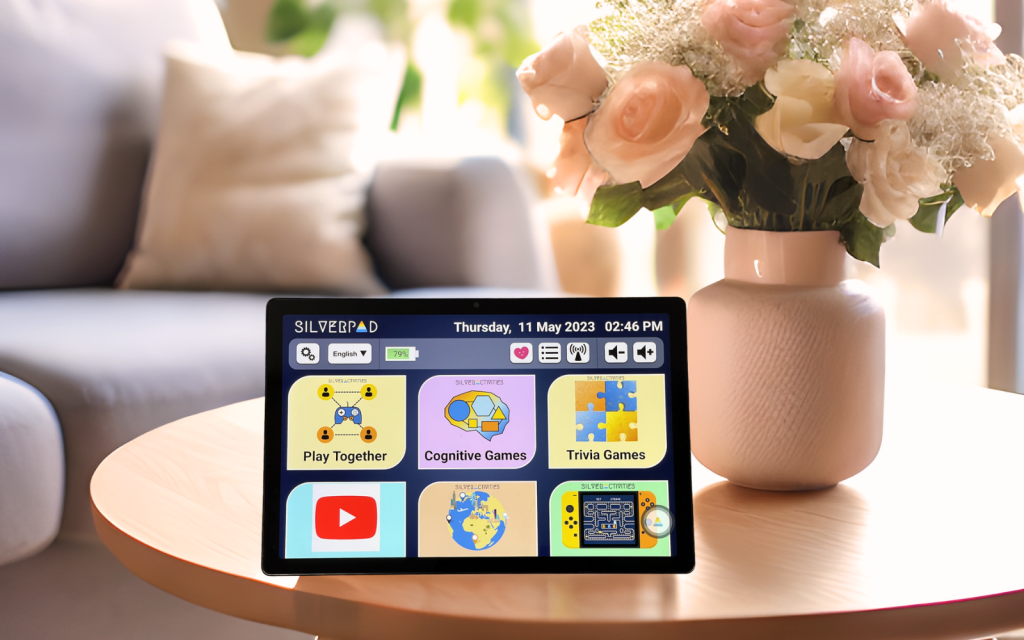Stepping into the role of a caregiver can be an overwhelming task. It’s often uncharted territory, particularly if you’re caring for a loved one who recently suffered a stroke. It may not be easy, but hopefully, these suggestions will help you navigate this journey more smoothly.
Decoding the Stroke
Every stroke is different. They vary widely depending on the severity and the area of the brain affected, leading to a unique set of challenges for each patient. It’s crucial to understand the specific implications of your loved one’s stroke. This will help you better anticipate their needs and manage their care more effectively. The healthcare team, trusted online resources, local support groups, and stroke survivor networks can provide invaluable insights and guidance.
Building Your Care Squad
No person is an island, and this holds especially true for caregivers. While you may be the primary caregiver, you need a support system around you. Assemble a diverse team, including healthcare professionals such as therapists, nurses, aides, along with family, friends, and community volunteers. This team can assist in various ways, whether it’s providing medical care, emotional support, respite care, or help with daily tasks.
Emphasizing Physical Rehabilitation
Physical therapy is often a cornerstone of recovery post-stroke. It’s designed to help regain strength, improve balance and coordination, and adapt to any new physical limitations. I found it extremely helpful to attend therapy sessions with my parent, learn the exercises, and incorporate them into a regular home routine. Ensuring your home environment is safe and supportive is also critical. This might mean removing tripping hazards, installing handrails, or adding other assistive devices.
Promoting Independence
As caregivers, we often fall into the habit of doing everything for our loved ones. While well-intentioned, this might inadvertently discourage their sense of independence. Instead, encourage self-sufficiency wherever safely possible. This could range from dressing themselves, managing their meals with adaptive tools, or taking responsibility for certain aspects of their therapy. These small steps towards independence can boost their self-esteem and provide you with a much-needed breather.
Prioritizing Clear and Compassionate Communication
Stroke can affect an individual’s ability to communicate, which can be a source of frustration for both parties. Establish a reliable method of communication that suits your loved one, whether it’s through words, gestures, writing, or assistive technology. Regularly discuss their feelings, fears, and concerns, ensuring they feel seen and heard. Maintaining open lines of communication with their medical team is also essential to track progress, adjust care plans, and address any arising complications promptly.
Recognizing and Addressing Emotional Health
Emotional and mental health is as important as physical health. Stroke survivors may grapple with changes in their emotional landscape or face mental health challenges, such as depression or anxiety. Stay vigilant to these possibilities and consider involving mental health professionals when needed. Providing emotional support, practicing active listening, and creating space for them to express their emotions are all crucial elements of holistic care.
Cultivating Patience and Persistence
Recovering from a stroke is a marathon, not a sprint. Your loved one may struggle with tasks that once were second nature to them. This can lead to understandable frustration and disappointment. Cultivate a deep well of patience, offering consistent encouragement and reassurance. Remind them that it’s okay to move at their own pace and celebrate each small accomplishment. And importantly, remember to extend the same patience and kindness to yourself.
Self-Care Isn’t Selfish: Recharging Your Batteries
It’s all too easy for caregivers to neglect their own needs, but it’s vital to remember that self-care isn’t selfish. On the contrary, caring for yourself is an integral part of being able to care for others. Ensure you’re taking regular breaks, getting enough sleep, eating a balanced diet, and engaging in activities you enjoy. Recognize the signs of caregiver burnout and seek help if you feel overwhelmed.
Navigating Financial Assistance
The financial burden of caregiving can be daunting. Investigate all possible avenues for financial assistance, including health insurance benefits, government programs, and support from local or national nonprofits. Consulting with a financial advisor or social worker can provide valuable insights into potential resources you might not be aware of.
Celebrating Small Victories
Finally, amid the challenges, don’t forget to celebrate small victories. Each incremental step forward, no matter how tiny it may seem, is a testament to your loved one’s resilience and determination. Celebrating these moments brings joy and positivity into the caregiving journey, fostering a sense of hope and motivation for both you and your loved one.
Stepping into the role of a caregiver for a stroke survivor is undeniably challenging. It’s a journey that may be fraught with frustration, fatigue, and fear. But it is also a journey brimming with moments of profound love, connection, and resilience. Hope these tips help make your journey smoother and less intimidating. Remember, you’re not alone. There’s a wealth of support available, a community of people who have walked in your shoes, and most importantly, there’s an inner strength within you that will guide you through this. You’ve got this. One day at a time.

In your journey as a caregiver for a loved one, it’s essential to explore various resources and tools that can help enhance their overall well-being. One such valuable product is SilverPad by SilverActivities, a senior-friendly tablet with large buttons and text designed specifically for seniors. It offers a range of engaging games and activities that stimulate cognitive functions, providing mental stimulation and enjoyment for seniors. Trusted by many senior care institutions and therapists, SilverPad has proven to be an effective tool for promoting cognitive health and maintaining a sense of engagement and connection.

